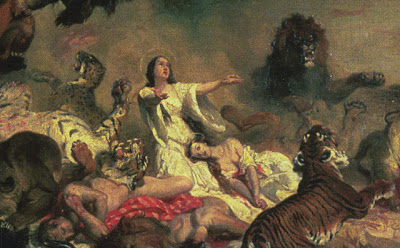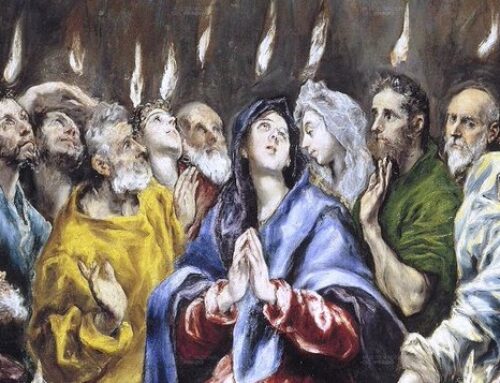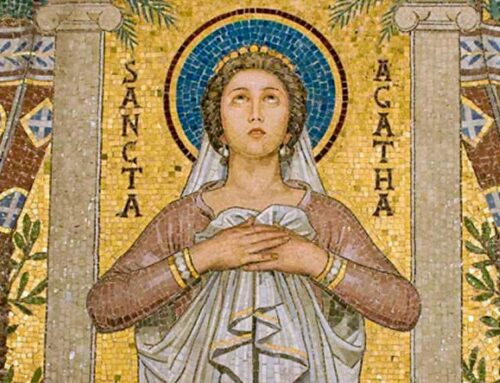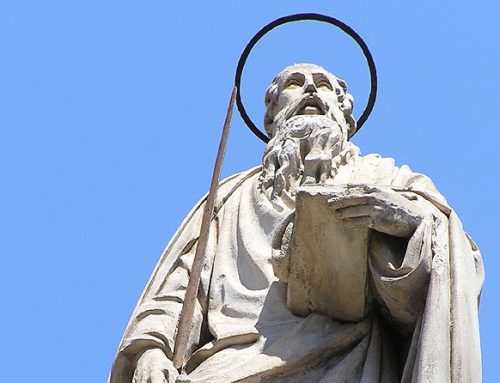The holy martyrs Perpetua and Felicity were among the most outstanding figures in the early centuries of Christianity. The Act of Martyrdom of Perpetua and Felicity was one of the widespread documents in the Church during their time.
There on the podium what God wants will happen; you have to know that we are not under our power but that of God.
They died in Carthage on March 7 of 203 along with three companions: Revocatus,Saturninus, Saturus. The details of the martyrdom of the saints of the Church in North Africa has come down to us through the genuine and contemporary description contained in their Act of Martyrdom.
The sacrifice of their life for the faith is one of the most moving events of the glorious struggle of the martyrs of the ancient times. Septimus Severus(Roman emperor 193-211) decreed the prohibition of the subjects of his empire, under severe penalties, against their conversion to Christianity.
Because of the decree, five catechumens in Carthage were captured and taken to prison. They were Vibia Perpetua, a 22-year old lady, married and of noble birth, her slave,Felicity, who was pregnant at that time, and the fellow-slaves of Felicity: Revocatus, Saturninus, Secundulus. Saturus, the one who introduced them to the Christian faith, promptly presented him before the judge, declaring that he was a Christian.
He was also imprisoned with the other catechumens. Perpetua’s father was a pagan. His mother, however, and two of his brothers were Christians, of which one was still a catechumen. A third brother of her, Dinocrates, had died as a pagan when he was still a child.
Upon their arrest and before being taken to prison, the five catechumens were baptized.The difficult life in the prison, the attempts of Perpetua’s father to induce his daughter to apostatize, the vicissitudes of the martyrs before their nearing execution, and the visions of Saturus and Perpetua had were put in writing by Saturus and Perpetua themselves. Shortly after their death, another Christian added the details of their execution to what Saturus and Perpetua had written.
The darkness and oppressive atmosphere in the prison, aggravated by the anxiety of having been separated from her recently-born son, aroused fear in Perpetua.
Two deacons managed to reach out to the prisoners and alleviate, in some way, their suffering. Also, the mother of Perpetua and her brother, who was still a catechumen, visited her. Her mother brought the son of Perpetua. Perpetua was allowed to keep her child in the prison with her.
A few days after Perpetua’s father heard about the rumour that the trial of the Christian prisoners would take place soon, he again visited his daughter Perpetua and begged her not to bring disgrace to his name. In spite of this, Perpetua remained strong in her faith.
The following day, the trial of the six prisoners took place before the Procurator Hilarianus.
The six resolutely confessed their Christian faith. Perpetua’s father, carrying Perpetua’s child in his arms, approached her daughter again and tried for the last time to convince her to apostatize. The prosecutor also tried to persuade her, but he also failed. Perpetua refused to pay homage to the gods to protect the emperor. The procurator, then, took Perpetua’s father away from her by force and was whipped.
The Christians prisoners were condemned to be torn by the beasts during the festival of the emperor’s birthday. The Christian prisoners accepted the sentence and gave thanks to God. They were transferred to the prison camp. The jailer Pudens had learned to respect the Christian prisoners, and allowed other Christians to visit them. They also allowed Perpetua’s father to talk with them but his attempt to convince them was never successful.
Secundulus, one of the confessors of the faith, died in prison. Felicity, who at the time of her imprisonment was eight months pregnant, thought that she would not suffer martyrdom together with others, because of a law that prohibited the execution of a pregnant woman. Two days before the festival, she gave birth to a girl who was adopted by a Christian woman. On March 7, the five prisoners were taken to the amphitheatre.
At the request of the pagan crowd they were scourged first, then, the men faced a boar, a bear and a leopard while the women faced a wild cow. Injured by the wild animals, they gave each other the kiss of peace, and then they were executed with a sword.
Their bodies were buried at Carthage. Their feast day was solemnly commemorated even outside of Africa. The names of Felicitas and Perpetua were included in the Philocalian calendar: the calendar of martyrs venerated publicly during the fourth century in Rome. Subsequently, a magnificent basilica was built over their grave: the Basilica Majorum. This was verified by the excavations of Pere Delattre, who discovered an ancient inscription that includes the names of the martyrs.
The feast of these saints is celebrated on March 7 and their names were added in theRoman Canon. The description in latin of their martyrdom was discovered by Holsteniusand was published by Poussin.
+ info –








Leave A Comment
You must be logged in to post a comment.